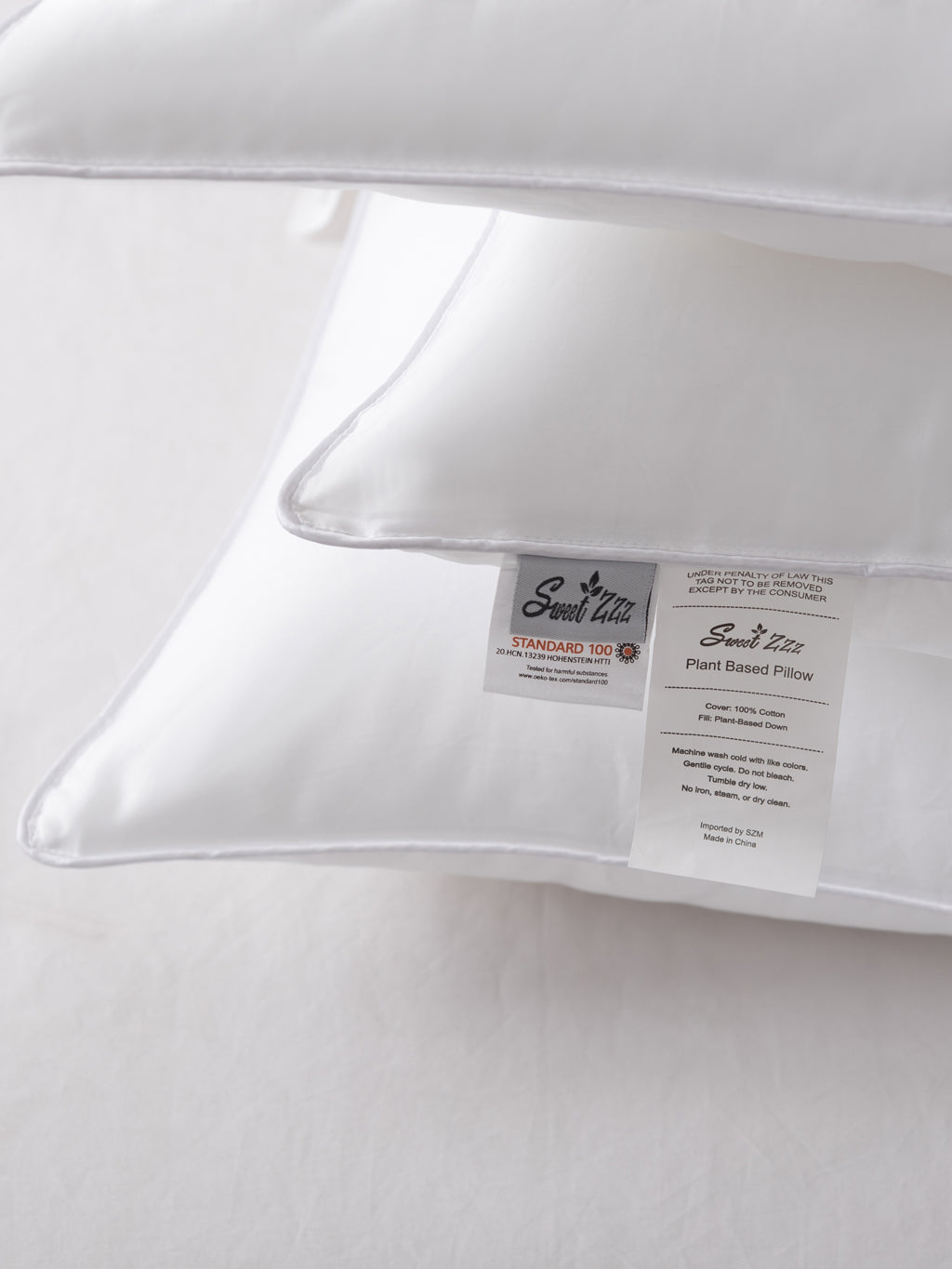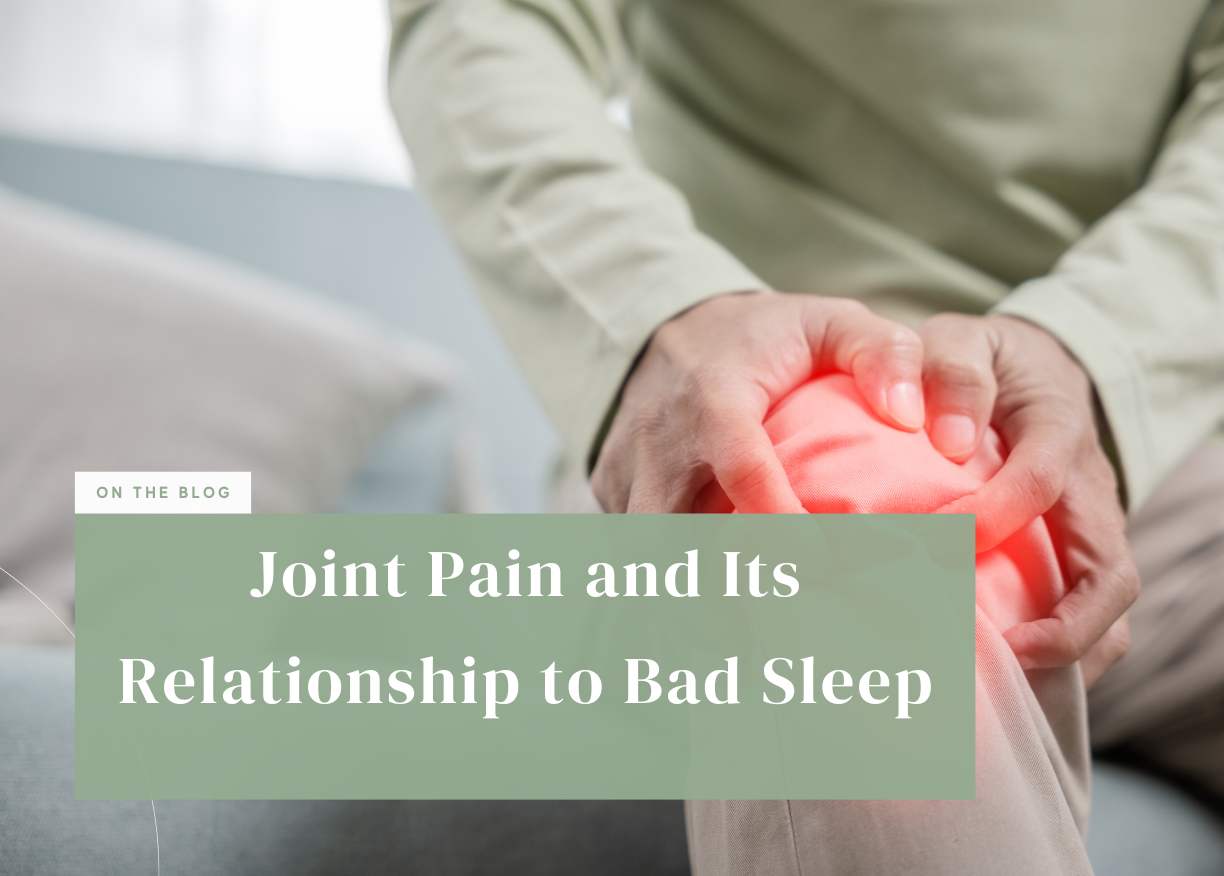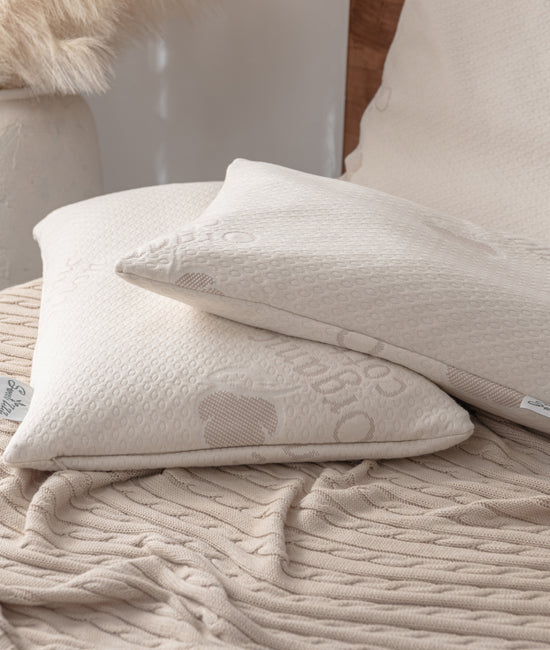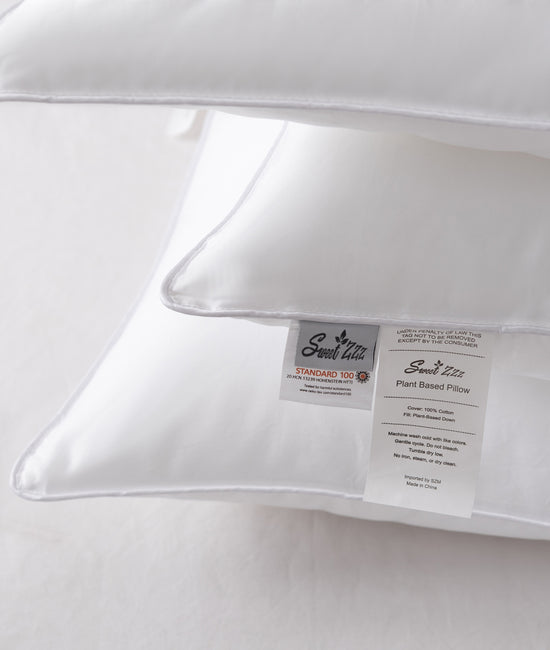Is Your Pillow Making You Sick? The Truth About 90% of Pillows
Most people don’t give much thought to what’s inside their pillow, but the truth is, many conventional pillows are filled with a dangerous mix of synthetic materials and harmful chemicals. Every night, as you rest your head, you might be exposing yourself to substances that can harm your health in ways you never expected.
The Chemicals Lurking in Your Pillow
Conventional pillows, especially those made from synthetic materials like memory foam or polyester, are often treated with a range of chemicals during production. Here are some of the most concerning ones you may be exposed to:
-
Volatile Organic Compounds (VOCs): Many synthetic pillows, especially memory foam pillows, release VOCs as they break down. These compounds are emitted as gases from the chemicals used in production and can cause a variety of health issues. VOCs can irritate the eyes, nose, and throat, and prolonged exposure has been linked to headaches, dizziness, respiratory issues, and in severe cases, even cancer. According to the EPA, indoor air quality is often compromised by VOCs emitted from products like bedding and furniture.

- Flame Retardants: While flame retardants are used to meet safety standards, they are not without risks. Many conventional pillows contain chemicals like polybrominated diphenyl ethers (PBDEs), which have been linked to hormone disruption, reproductive issues, and even neurological damage. Studies, including those from the Environmental Working Group (EWG), highlight the dangers of prolonged exposure to flame retardants in everyday products, including pillows.
- Formaldehyde: Formaldehyde is another common chemical used in the manufacturing process of pillows, particularly to make them wrinkle-resistant or more durable. The National Cancer Institute (NCI) lists formaldehyde as a known carcinogen. Over time, exposure to this chemical can lead to respiratory problems, allergic reactions, and an increased risk of cancer.
The Health Risks You’re Facing
When you consider the chemicals found in many pillows, it’s easy to see how sleeping on them could lead to a range of health problems. These chemicals don’t just sit dormant inside the pillow; they can off-gas, releasing harmful fumes into the air you breathe. Additionally, direct skin contact with these substances can cause allergic reactions, skin irritation, and respiratory issues.

The long-term exposure to these chemicals, particularly during the extended time we spend in bed, can compound these health risks. Breathing in these toxins night after night could increase the likelihood of developing chronic conditions such as asthma, hormonal imbalances, or even cancer.
The Safer, Healthier Alternative: Plant-Based Pillows
Luckily, there’s a solution to this hidden danger: switching to eco-friendly, non-toxic bedding. The Sweet Zzz Plant-Based Pillow is an excellent alternative to chemical-laden pillows. Made with 100% natural fill and cover, this pillow is free from VOCs, flame retardants, formaldehyde, and pesticides.
Plant-based pillows, like the one offered by Sweet Zzz, provide all the comfort and support you need without exposing you to harmful chemicals. Their natural materials, such as organic cotton and plant-based fibers, ensure that your sleep environment is safe, breathable, and hypoallergenic. By opting for a plant-based pillow, you’re not only protecting your health but also reducing your environmental footprint.
Final Thoughts
Your pillow is an important part of your sleep routine, but it could also be a source of significant health risks. From VOCs and formaldehyde to pesticide residues, conventional pillows are often full of harmful chemicals that you breathe in while you sleep. Switching to a natural, plant-based pillow like the Sweet Zzz Plant-Based Pillow is a simple yet effective way to protect your health and create a safer, cleaner sleep environment.







